Africa
Thousands displaced by Sudan war return home from Egypt
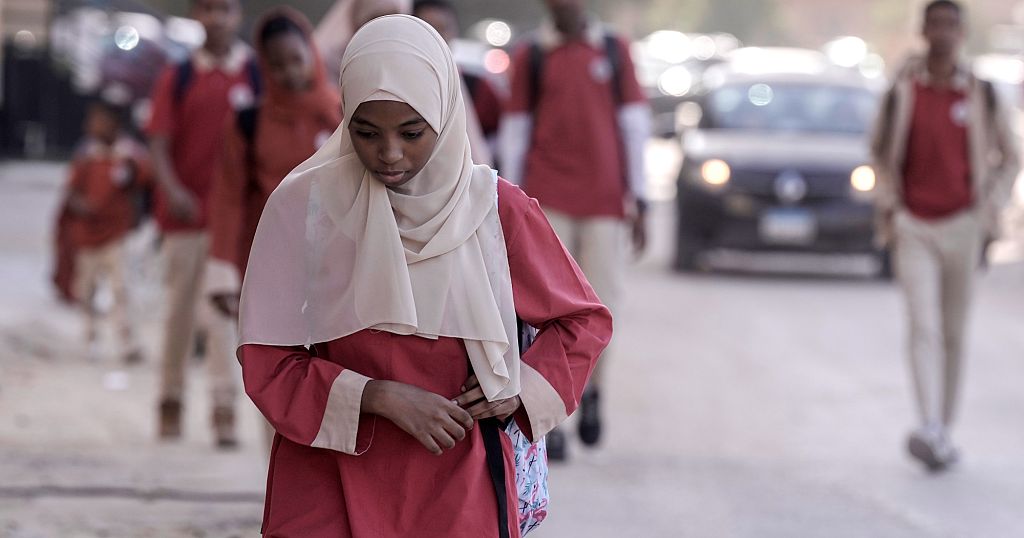
Tens of thousands of Sudanese driven from their homes by conflict are now returning, despite war still raging in some parts of the country.
They set off on the journey, even though they don’t know what they’ll find in their homeland, wrecked and still embroiled in a two-year-old war.
But they are hoping for some stability after the military recaptured the capital Khartoum and other areas from its rival, the Rapid Support Forces.
Nearly 13 million people fled their homes, with some 4 million streaming into neighbouring countries and the rest sheltering elsewhere in Sudan.
A relatively small portion of the refugees are returning so far, but the numbers are accelerating.
Some 1.5 million Sudanese fled to Egypt during the war, according to the United Nations High Commissioner for Refugees.
In Cairo, travel agency coordinator Walid Abu el-Seid says there has been a noticeable uptick in travellers booking trips back to Sudan.
Hundreds of Sudanese take the two or three buses each day for southern Egypt, the first leg in the journey home.
According to the International Organization for Migration, some 123,000 Sudanese returned from Egypt since the start of the year, including nearly 50,000 so far in April, double the month before.
It estimates that some 400,000 internally displaced Sudanese have gone back to their homes in the Khartoum area, neighbouring Gezira province and southeast Sennar province.
But many of the returnees are finding their neighbourhoods shattered left shattered by fighting, often with no electricity and scarce food, water and services.
Still, Huzaifa Al-Mubarak was determined to go back.
About to board a bus in Egypt’s capital Cairo, he insisted that there were “no fears in Khartoum… It is safe and secure.”
The battle for power between the military and Rapid Support Forces caused one of the worst humanitarian crises in the world.
At least 20,000 people were killed, according to the United Nations, though the figure is likely higher.
Aid remains limited and the scale of needs far exceeds available resources, according to UNHCR officials.
Africa
Red Cross escorts hundreds of stranded Congolese soldiers from rebel-controlled city to capital
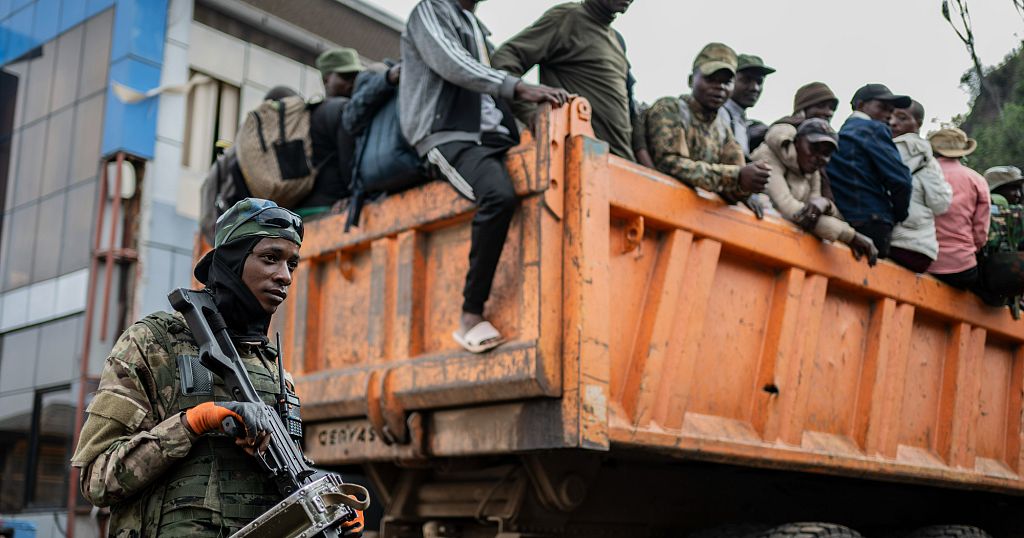
Hundreds of stranded Congolese soldiers and police officers, along with their families, were being transferred from the rebel-controlled city of Goma in eastern Congo to the capital, the International Committee of the Red Cross announced Wednesday.
The soldiers and police officers have been taking refuge at the United Nations Stabilisation Mission in Congo’s base since January, when the decades-long conflict in eastern Congo escalated as the Rwanda-backed M23 rebels advanced and seized the strategic Goma.
The operation is the result of an agreement reached between the Congolese government, the rebels, the U.N. mission and the ICRC, which was called upon as a neutral intermediary, the Red Cross said in a statement. Upon arrival in Kinshasa, the soldiers, police officers and their families will be taken in by Congolese authorities, it added.
Myriam Favier, the ICRC chief in Goma, said during a press briefing Wednesday that the transfer from Goma to Kinshasa, about 1,600 kilometers (1,000 miles) to the west, is expected to last several days.
The announcement was greeted with profound relief.
“We were disarmed because we had no choice, but we hope to reach Kinshasa,” a Congolese soldier told The Associated Press over the phone, ahead of his transfer. “As soldiers, we are always ready to defend our homeland. We lost a battle, not the war,” he said.
He spoke on condition of anonymity because he was still in the rebel-controlled area and not allowed to speak to reporters.
Sylvain Ekenge, spokesperson for Congo’s armed forces, welcomed the initiative in a statement on Wednesday.
“The Congolese Armed Forces hopes that this operation will be carried out in strict compliance with the commitments made,” he said, thanking the ICRC for its role.
For security reasons, no media outlets were allowed to film or photograph the operation.
The news of the ICRC’s escort comes amid persistent tensions in eastern Congo, where fighting between Congo’s army and M23 continues, despite both sides having agreed to work toward a truce earlier this month.
On Saturday, residents of Kaziba in the South Kivu province reported clashes between Congolese armed forces, supported by an allied militia, and M23.
M23 is one of about 100 armed groups vying for a foothold in mineral-rich eastern Congo near the border with Rwanda, in a conflict that has created one of the world’s most significant humanitarian crises. More than 7 million people have been displaced.
The rebels are supported by about 4,000 troops from neighbouring Rwanda, according to U.N. experts, and at times have vowed to march as far as Kinshasa.
In Feburary, the U.N. Human Rights Council launched a commission to investigate atrocities, including allegations of rape and killing akin to “summary executions” by both sides.
Conflict in eastern Congo is estimated to have killed 6 million people since the mid-1990s, in the wake of the Rwanda genocide. Some of the ethnic Hutu extremists responsible for the 1994 killing of an estimated 1 million of Rwanda’s minority ethnic Tutsis and Hutu moderates later fled across the border into eastern Congo, fueling the proxy fighting between rival militias aligned to the two governments.
Africa
Algeria to unveil military mobilisation bill amid regional tensions
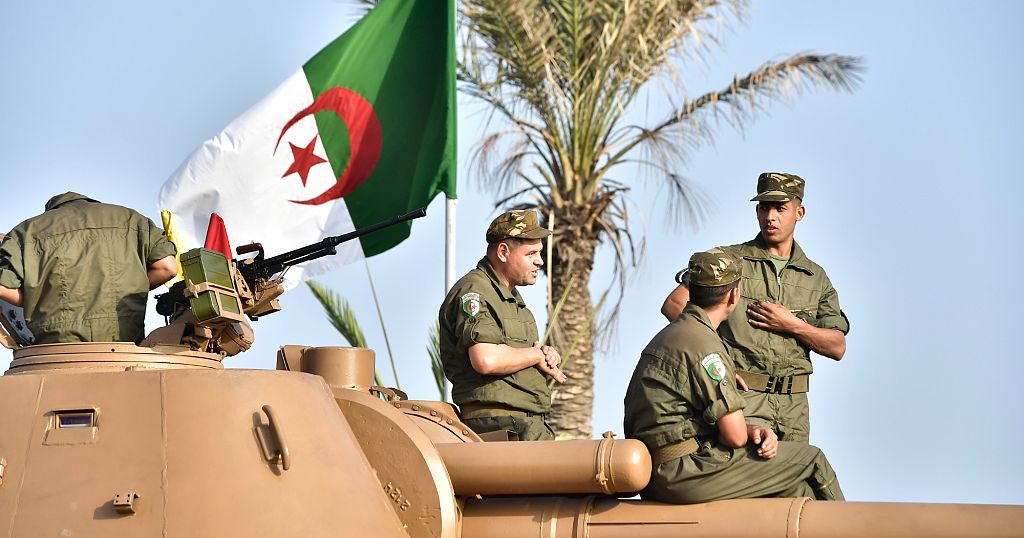
Amid ongoing tension with neighbours Morocco and Mali, Algeria is to unveil a military mobilisation bill on Wednesday.
Adopted by the Council of Ministers earlier this month, the draft law signals a significant shift in the country’s security policies.
It comes as Algeria’s army chief of staff makes a series of trips to border areas to oversee military manoeuvres.
The draft bill lays the groundwork for a full-scale wartime mobilisation that would put civilians, the economy, and the country’s institutions under direct military command.
President Abdelmadjid Tebboune has described the proposed bill as a necessary legal framework to address any national crisis, not just war.
The unveiling of the text by the country’s minister of justice, comes after Algeria earlier this month said it had shot down a military drone near its border with Mali.
It was the first incident of its kind amid growing tensions between the two countries that each govern a vast portion of the Sahara.
Algier’s relations with former colonial power, France, have also deteriorated after Paris shifted its position to support Morocco’s autonomy plan for the disputed Western Sahara region.
The territory is claimed by the pro-independence Polisario Front, which receives support from Algeria.
The proposed military mobilisation bill has raised concerns among ordinary Algerians.
Africa
Bomb Blast Kills 26 in Northeast Nigeria
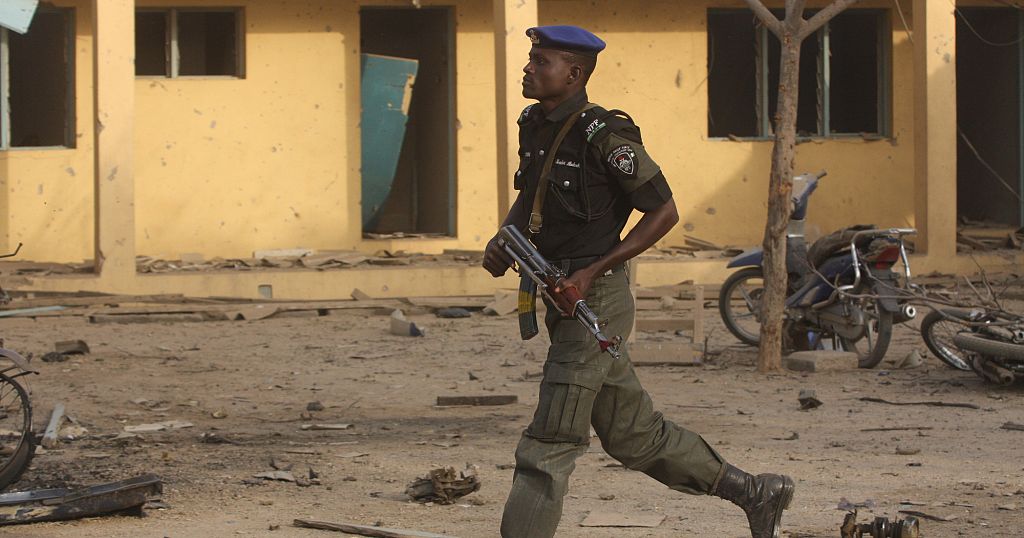
Improvised explosive devices detonated on a road in northeastern Nigeria killing at least 26 people in several vehicles, including women and children, police said Tuesday. An Islamic State group affiliate in the West African country claimed responsibility for the Monday attack.
The blasts happened on a busy road connecting the towns of Rann and Gamboru in Borno state, near the border with Cameroon, Nigerian police spokesperson Nahum Daso told The Associated Press. Multiple explosives planted along the route ripped into several civilian commercial vehicles coming from Rann, killing at least 26 people, he said.
Most of those killed were local farmers and traders crowded in a Toyota pick up van that drove over a land mine, Daso said. He said the mine was buried by suspected militants from the Islamic State affiliate known as IS West Africa Province. Besides the dead, at least three people were injured and were taken to nearby medical facilities for treatment. Security forces have since secured the area and begun clearance operations.
Abba Modu, a member of the Civilian Joint Task Force, a vigilante group that supports the military in the fight against Islamic militants, said the explosives may have been intended for security operatives who regularly patrol the highway. “Terrorists often plant IEDs in craters or under sand on severely damaged sections of roads, typically targeting soldiers,” Modu said.
The Islamic State West Africa Province, also known as ISWAP, claimed responsibility for the attack in a statement on Telegram on Tuesday. The IS-linked group is an offshoot of Boko Haram, Nigeria’s homegrown jihadis who took up arms in 2009 to fight Western education and impose their radical version of Islamic law. In 2016, ISWAP broke away from Boko Haram following a dispute over leadership and the strategy of attacking civilian targets such as mosques and marketplaces. The conflict between Nigeria and Islamic extremists is Africa’s longest struggle with militancy.
It has spilled into Nigeria’s northern neighbours Chad, Niger and Cameroon, and has left some 35,000 civilians dead and more than 2 million displaced, according to the U.N. Nigeria’s northeastern region has been particularly hard hit by Islamic militant violence. Earlier this month, a roadside bomb suspected to have been planted by Islamic extremists in northeastern Nigeria struck a passenger bus and killed eight people. On Tuesday, the Nigerian military appointed a new commander, Maj. Gen. Abdulsalam Abubakar, in the fight against Boko Haram and the Islamic State West Africa Province insurgencies in the northeast, the spokesperson for the operation said in a statement.
-

 Education2 days ago
Education2 days agoStudents and faculty demand Columbia University stand up to federal government
-

 Middle East2 days ago
Middle East2 days agoIsrael’s Shin Bet chief ousted by Netanyahu says will stand down on June 15 | News
-

 Europe2 days ago
Europe2 days agoAlexandra Fröhlich: Police launch murder investigation after bestselling novelist found dead on houseboat
-
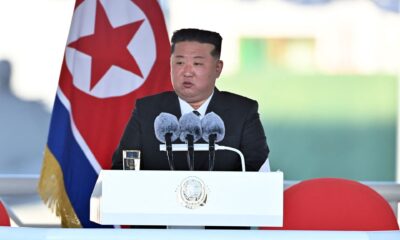
 Conflict Zones14 hours ago
Conflict Zones14 hours agoAbout 600 North Korean soldiers killed in war in Ukraine, lawmakers say | Russia-Ukraine war News
-
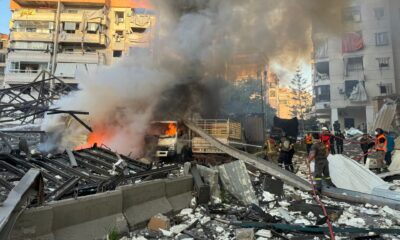
 Conflict Zones2 days ago
Conflict Zones2 days agoHezbollah leader says Lebanese gov’t must do more to end Israeli attacks | Hezbollah News
-

 Lifestyle18 hours ago
Lifestyle18 hours agoAfter a year of turmoil, The Washington Post is taking note of its journalism again
-

 Asia19 hours ago
Asia19 hours agoFall of Saigon: US officers who broke rank to save lives recall final days of Vietnam War 50 years on
-
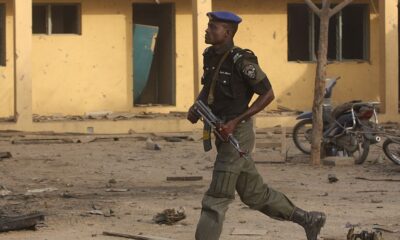
 Africa23 hours ago
Africa23 hours agoBomb Blast Kills 26 in Northeast Nigeria




